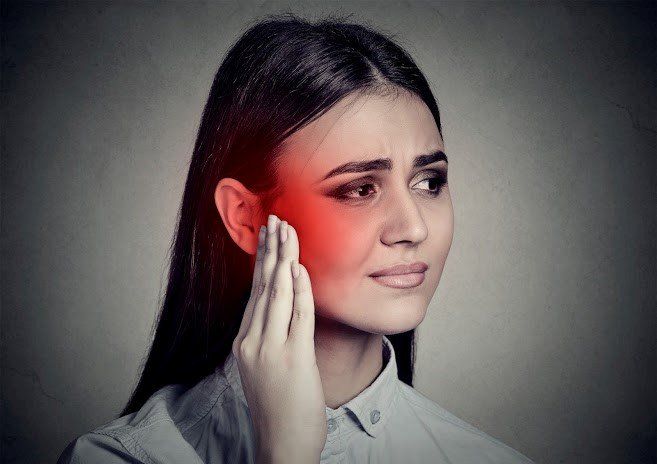Blog Layout
Is It a Toothache or TMJ Pain?
Admin • November 7, 2020

Temporomandibular joint (TMJ) pain can put you out of commission because of how severe it can be. However, because of its location and the responsibilities it holds, TMJ pain can often feel like dental pain. If you have jaw pain and aren't sure if it's TMJ disorder or a toothache, keep reading to learn more.
What Is TMJ Disorder?
TMJ disorder affects the temporomandibular joint, which connects your jawbone to the skull on each side of your face. This joint is responsible for opening and closing your mouth. TMJ disorder occurs when the joint becomes inflamed and irritated. Causes of TMJ vary from person to person. While one patient may suffer from arthritis-induced TMJ pain, another may cause their own pain by grinding their teeth at night.
TMJ symptoms can range from mild to severe and include pain in the jaw, aching pain around the ear, and difficulty or pain when eating. In severe cases, the jaw can lock, which makes it hard to open and close your mouth.
Why Does TMJ Pain Cause Tooth Pain?
Because of its location near many muscles, nerves, and ligaments, TMJ pain can radiate to other parts of your face, neck, and head. This is known as referred pain, and in some cases, the radiated pain is severe enough that you may not think the pain is not coming from the TMJ. Some pain radiates upward, which may cause pain in the head, ear, eyes, etc. However, when the pain radiates downward, it can cause pain near your teeth.
Pain from TMJ can be dull, sharp, searing, sporadic, constant, etc. Different types of toothaches cause similar pain, which may cause patients to believe they are suffering from a toothache instead of TMJ disorder. TMJ also causes tooth pain by irritating trigger points. These trigger points form when the muscle becomes contracted and stiff. Less oxygenated blood reaches the area, and more toxins are held, causing tenderness.
Can Tooth Pain Cause TMJ Pain?
TMJ pain can make you think you have a toothache, but the connection runs deeper. If you undergo a lot of dental procedures, such as crowns, it can affect your bite. In turn, this change can put extra strain on the jaw joint. Unlike referred pain, however, the jaw joint becomes inflamed and irritated because of the new position of the mouth. If left untreated, this can cause long-term TMJ pain.
A severe toothache in an upper molar may refer pain to another part of the face, including the jaw joint, making it feel like you have TMJ pain. However, in this case, fixing the toothache should fully resolve the TMJ pain. Of course, the pain may have caused you to grind your teeth or clench your teeth, which can leave the TMJ sore for a time too.
How Can You Differentiate TMJ Pain From a Toothache?
If TMJ pain and toothache pain go hand in hand, how can you tell which is which? First, take a look inside your mouth to check for any cavities, chips, or cracks, which may be causing the pain. Similarly, if you have a tooth infection, you may spot pus oozing from a tooth. An infected tooth will also smell foul, and you may have a bitter taste in your mouth.
If one or more of your teeth is suddenly overly sensitive to heat, cold, or sugar, you probably have a cavity. Finally, try resting your face for a time and/or massaging the temporomandibular joint. If the pain seems to lessen or dissipate, it may be TMJ pain.
TMJ pain can make your entire face hurt, including your teeth, making it hard to determine what kind of pain you are experiencing. If you believe your pain is from a toothache, or you want to rule out a cavity or infection, contact us
at Davis & Beyer Dental Health Professionals today.
Browse Our Website
Content, including images, displayed on this website is protected by copyright laws. Downloading, republication, retransmission or reproduction of content on this website is strictly prohibited. Terms of Use
| Privacy Policy







